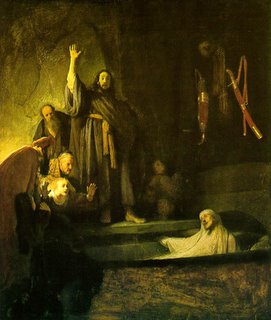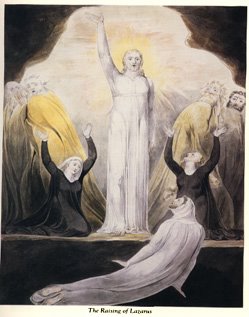















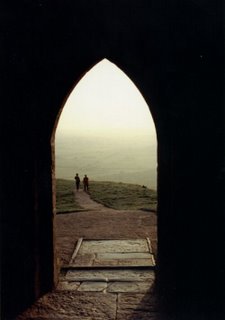
A group of Moslem males have tried to get at the daughter of one of the 12 cartoonists who drew the cartoons of Muhammed at her school. The political spokesman of the Liberals, Jens Rohde, revealed this during an interview with TV-Avisen while explaining his and the Prime Minister's attack on the business community in Denmark, charging that they have put profits over Freedom of Speech.
12 cartoonists who drew the cartoons of Muhammed at her school. The political spokesman of the Liberals, Jens Rohde, revealed this during an interview with TV-Avisen while explaining his and the Prime Minister's attack on the business community in Denmark, charging that they have put profits over Freedom of Speech.
Rohde says that the 12 cartoonists have had their lives overturned and are now living in hiding, after receiving several death threats.
"And a daughter of one of cartoonist was sought out by 12 Moslem males - they were looking to get to her. Fortunately she wasn't at school," Jens Rohde said.
Meting with Cartoonists
Later Thursday night, Jens Rohde told Ritzaus Bureau that he was told of this incident during a meeting with the cartoonists.
The Police Intelligence Service did not wish to comment on this.
The Police Intelligence Service is the branch of the police that provides protection for citizens deemed to be in danger.
Update: But dagbladet.no managed to get a comment from the Police Intelligence Service :
(Dagbladet.no): En gruppe muslimske menn skal ha prøvd å få fatt i datteren til en av tegnerne bak de tolv karikaturene av profeten Muhammed som ble publisert i den danske avisen Jyllandsposten i fjor.Det sier det danske partiet Venstres politiske leder Jens Rohde til dansk tv i kveld.
De tolv tegnerne skal ha fått snudd fullstendig opp ned på sine liv på grunn av raseriet tegningene deres har utløst. Rohde hevder 12 muslimske menn skal ha møtt opp på en skole for å få fatt i datteren til en av tegnerne.
- Heldgvis var hun ikke på skolen, sa Rohde til danske TV Avisen.
Venstre-lederen sier til nyhetsbyrået Ritzau at han fikk vite om episoden under et møte med noen karikaturtegnere. Dansk politi har ikke bekreftet opplysningene.
[more at link above.]![[TypeKey Profile Page]](http://www.jihadwatch.org/nav-commenters.gif) at March 2, 2006 08:32 PM
at March 2, 2006 08:32 PM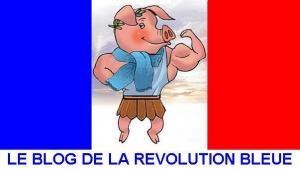
 We'll meet again to make our presence known as free people. We'll do so Thursday across the world. We'll shout! We don't have to remain silent and afraid that our politicians and our intellectuals are abandoning us in favor of their new-found Islamic buddies. We stand up for ourselves and take our own control of our own nations. No more Islamic triumphalism shoved down our throats, poured into our schools, dictating our public agendas, corrupting our media, shutting down our rights to speak, to criticise, to make our views known in public. Un uh.
We'll meet again to make our presence known as free people. We'll do so Thursday across the world. We'll shout! We don't have to remain silent and afraid that our politicians and our intellectuals are abandoning us in favor of their new-found Islamic buddies. We stand up for ourselves and take our own control of our own nations. No more Islamic triumphalism shoved down our throats, poured into our schools, dictating our public agendas, corrupting our media, shutting down our rights to speak, to criticise, to make our views known in public. Un uh.
 Below we read the real truth about the Right wing capitalist exploiters-of-the-poor fascists. We present this just so you'll know how evil you are. Really, without this piece you'll probably live your life in ignorance of it. Ah, thank me later.
Below we read the real truth about the Right wing capitalist exploiters-of-the-poor fascists. We present this just so you'll know how evil you are. Really, without this piece you'll probably live your life in ignorance of it. Ah, thank me later.The cultural and political elite of Europe do not hesitate to suppress speech, in deference to the dominant group (as in the case of Zieler's Jesus cartoons) or with a view to upholding their pretense to anti-fascism (as in the case of prohibition of Holocaust denial).
Make no mistake. Jyllands-Posten is not in the business of promoting the freedom of speech. Nor are the European governments that rallied to its defense. What they claim is the license to injure the oppressed and marginalized.
The issue is not free speech. The issue is power. Who has it and who doesn't.
The powerless in Europe today are Arabs and Muslims, many of whom are immigrants, the chief target of the xenophobic European Right.
 I fell in love with Carson McCullers when I was a boy. Now that I'm old and cranky I love her in a way completely different. And I realise that not a bit of it makes any difference to Carson McCullers or any other girl, nor should it. I'm sure Carson McCullers would have loved me, not because I love her but because she would have loved me. And I think we two would have been fast friends for the duration. Unlike my cat who loved me because I loved him, Carson McCullers would love because she does.
I fell in love with Carson McCullers when I was a boy. Now that I'm old and cranky I love her in a way completely different. And I realise that not a bit of it makes any difference to Carson McCullers or any other girl, nor should it. I'm sure Carson McCullers would have loved me, not because I love her but because she would have loved me. And I think we two would have been fast friends for the duration. Unlike my cat who loved me because I loved him, Carson McCullers would love because she does.Lula Carson Smith (Carson McCullers) was born in Columbus, Georgia, as the daughter of a well-to-do watchmaker and jeweller of French Hugenot extraction. From the age of five she took piano lessons, and at the age of 15 she received a typewriter from her father. Two years later she moved to New York to study piano at Julliard School of Music, but never attended the school - she managed to lose the money set aside for her tuition. McCullers worked in menial jobs and devoted herself to writing. She studied creative writing at Columbia and New York universities and published in 1936 an autobiographical piece, 'Wunderkind', in Story magazine. It depicted a musical prodigy's failure and adolescent insecurity.
In 1937 she married Reeves McCullers, a failed author. Before the wedding she him told her parents that she did not want to marry him until she first had experienced sex with him. "The sexual experience was not like D.H. Lawrence," she later said. "No grand explosions or colored lights, but it gave me a chance to know Reeves better, and really learn to love him." They moved to North Caroline, living there for two years. During this time she wrote The Heart is a Lonely Hunter, a novel in the Southern Gothic tradition. ...
[John Huston writes:] "I first met Carson McCullers during the war when I was visiting Paulette Goddard and Burgess Meredith in upstate New York," said Huston in An Open Book (1980). "Carson lived nearby, and one day when Buzz and I were out for a walk she hailed us from her doorway. She was then in her early twenties, and had already suffered the first of series of strokes that made her an invalid before she was thirty. I remember her as a fragile thing with great shining eyes, and a tremor in her hand as she placed it in mine. It wasn't palsy, rather a quiver of animal timidity. But there was nothing timid or frail about the manner in which Carson McCullers faced life. And as her affections multiplied, she only grew stronger."
McCullers's marriage turned out to be unlucky. They both had homosexual relationships and separated in 1940. She moved to New York to live with George Davis, the editor of Harper's Bazaar. In Brooklyn McCullers became a member of the art commune February House. Among their friends were W.H. Auden, Paul and Jane Bowles, and the striptease artiste Gipsy Rose Lee. After World War II McCullers lived mostly in Paris. Her close friends during these years included Truman Capote and Tennessee Williams.
Carson McCullers suffered throughout her life from several illnesses - she had contracted rheumatic fever at the age of fifteen and a series of strokes left her a virtual invalid in her early 30's. She died in New York on September 29, 1967, after a stroke and a resultant brain haemorrhage.
[....]
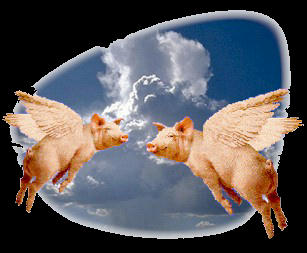
 London's Central Defenestration Committee staged a massive demonstration earlier today under the office of the Lord Mayor, Red Ken Livingstone. Between sips of tea and nibbles of cucumber sandwiches, the a woman bearing a striking resemblance to the Queen and thousand of other British protesters chanted "Throw Red Ken out of Office!"
London's Central Defenestration Committee staged a massive demonstration earlier today under the office of the Lord Mayor, Red Ken Livingstone. Between sips of tea and nibbles of cucumber sandwiches, the a woman bearing a striking resemblance to the Queen and thousand of other British protesters chanted "Throw Red Ken out of Office!"
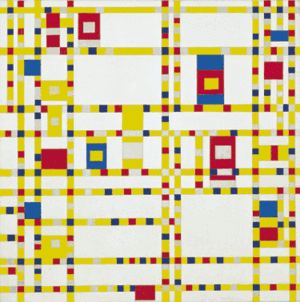
Why Left dhimmi fascism? How did the West get itself into this bind whereby anyone with a "grievance" can claim victimhood and compensation while the West ties itself in knots of guilt and self-loathing? In past posts we've searched through history to examine the ideas of the Counter-Enlightenment thinkers who concocted the base for this idiocy, thinkers such as Herder, Fichte, Heidegger among others. Recently we've looked at the history of the Renaissance popes of the Catholic Church and the Protestant Reformers. We've seen the story of Sawney Beane, of morality based on the authority of one cannibal living in a cave. Here we will continue on that theme of moral authority and the metaphors that motivate us in our moral lives.
